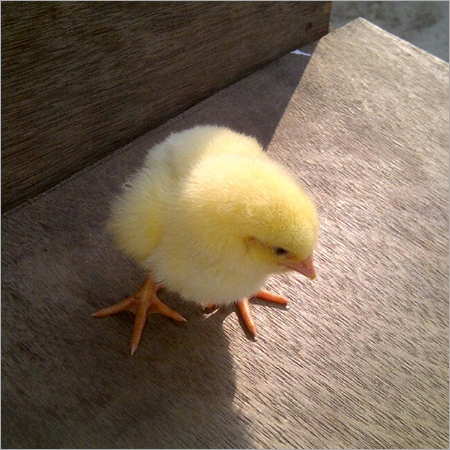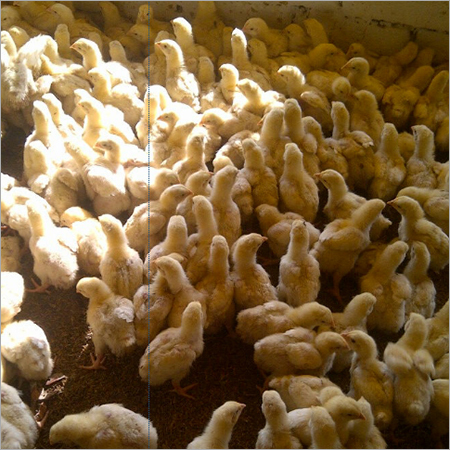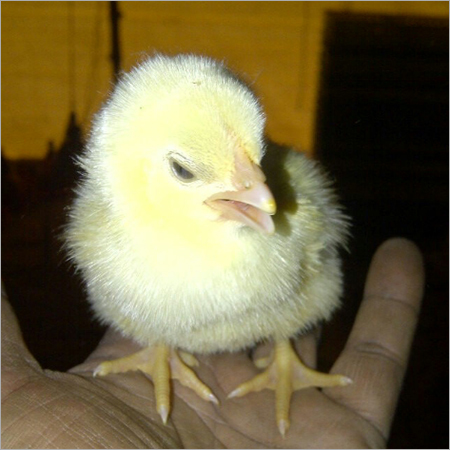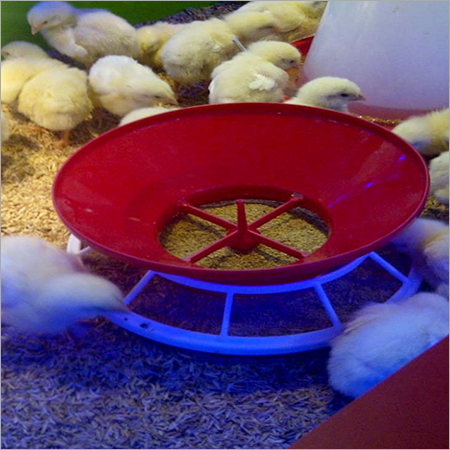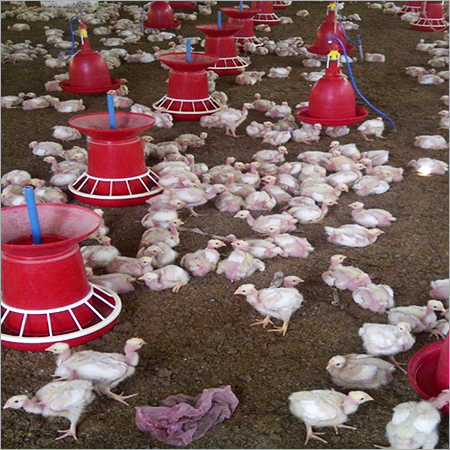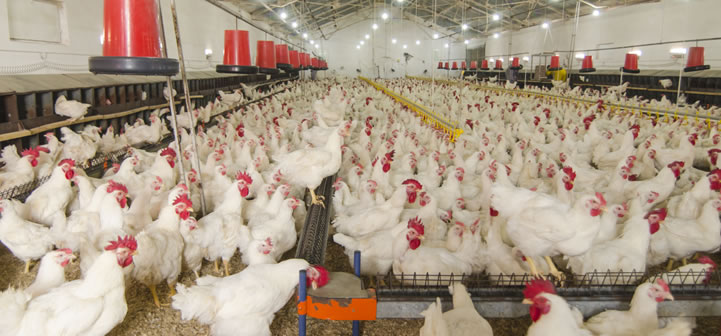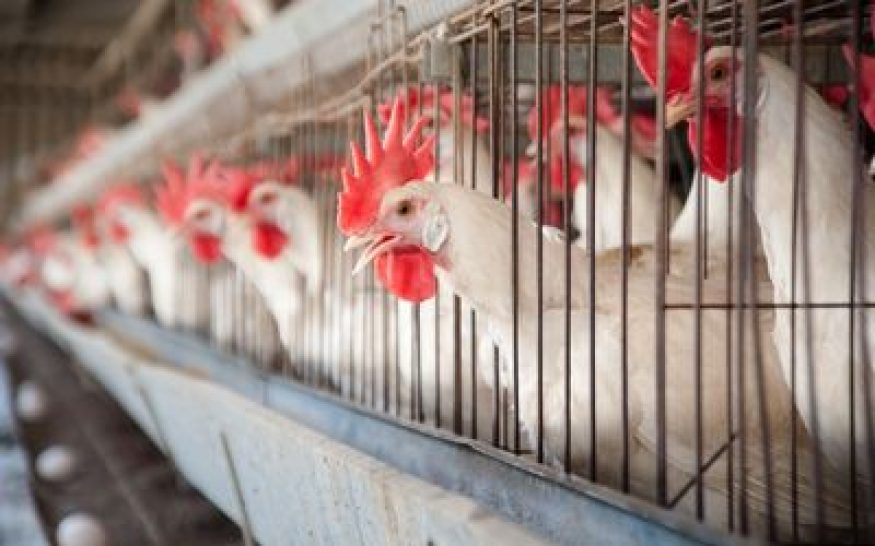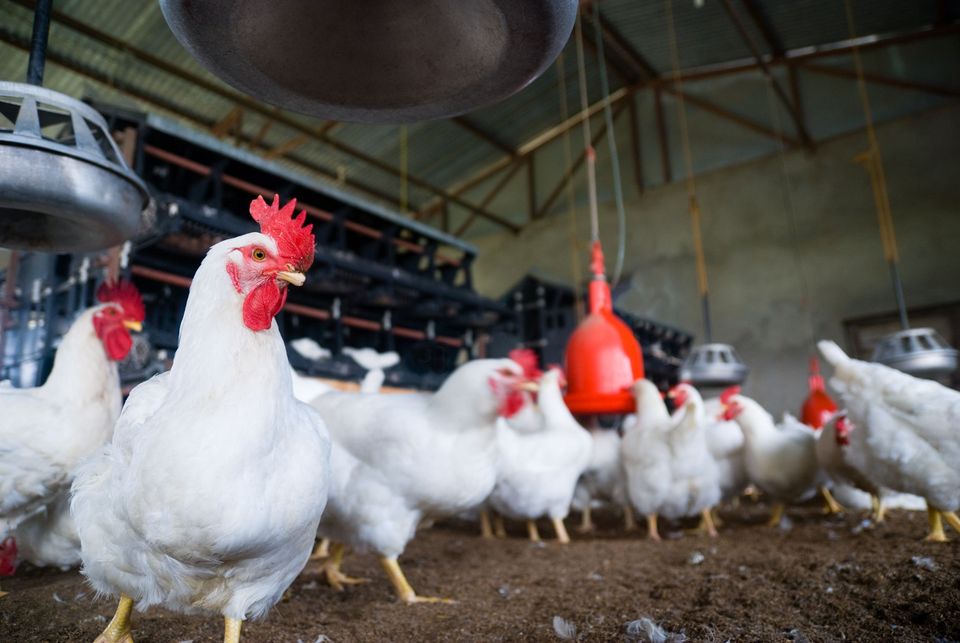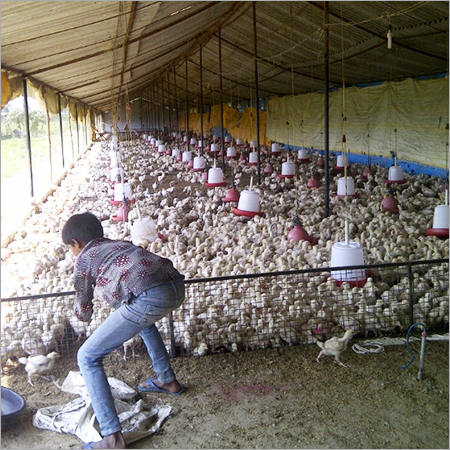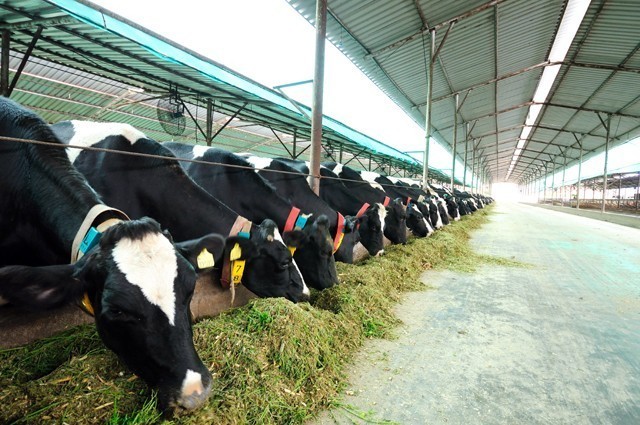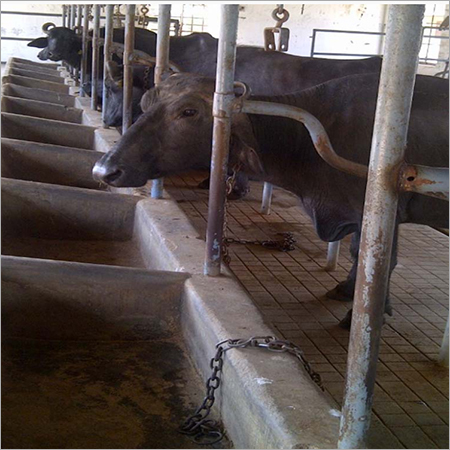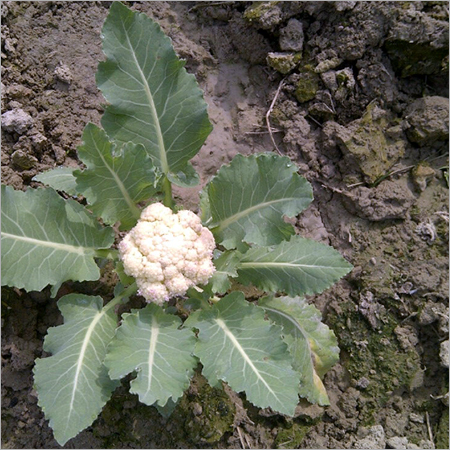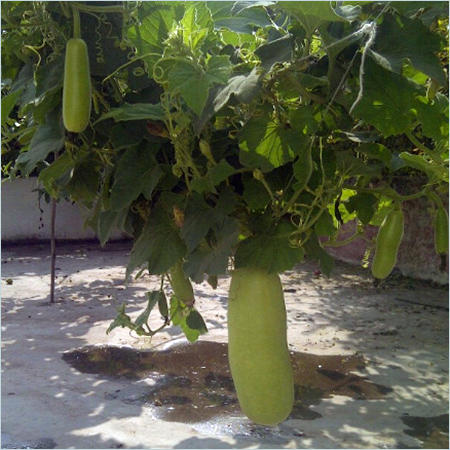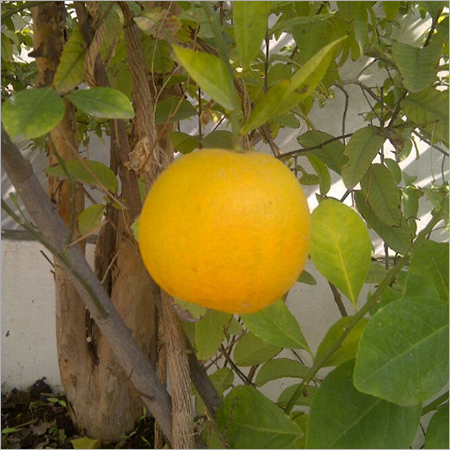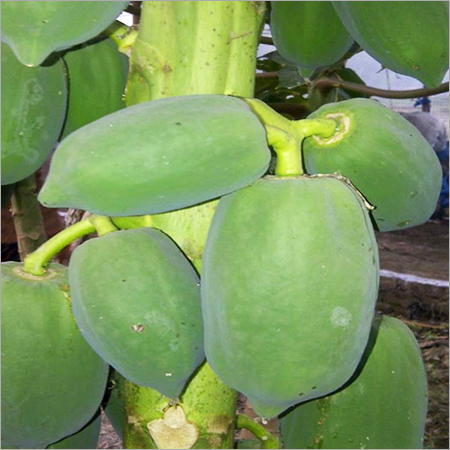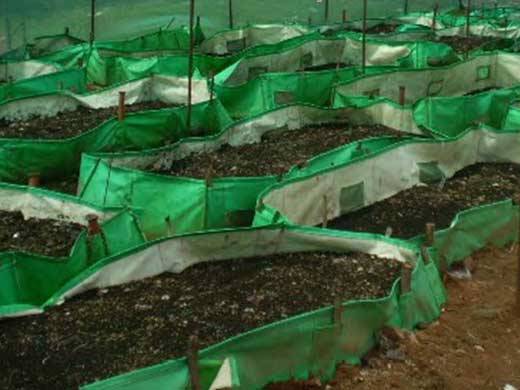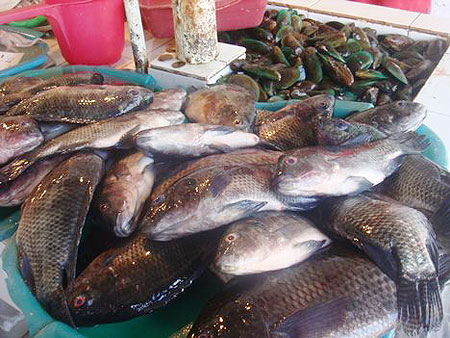Sustainable agriculture means an integrated approach to increasing farm yield and managing resources in order to address all three critical aspects of sustainability: economic, environmental and social. ABA AGRICULTURE AND RURAL DEVELOPMENT LIMITED has adopted the Integrated Farming Systems (IFS) approach to stabilise income streams through natural resource management and livelihood diversification.
The IFS approach has multiple objectives of sustainability, food security, farmer security and poverty reduction. It involves use of outputs of one enterprise component as inputs for other related enterprises wherever feasible, for example, cattle dung mixed with crop residues and farm waste can be converted in to nutrient-rich vermi-compost. The salient features of IFS include – innovation in farming for maximising production through optimal use of local resources, effective recycling of farm waste for productive purposes, community-led local systems for water conservation, organic farming, and developing a judicious mix of income-generating activities such as dairy, poultry, fishery, goat-rearing, vermicomposting and others. Abaard Limited builds farmer capacities for adoption of productive, remunerative, eco-friendly and self-sustaining integrated farming systems.
Commenced our business operations in the year 2013, we, Abaard Limited, have been fortunate enough to witness success of unmatched proportions unfold, while our competitors who started with us have lost into oblivion. A renowned Manufacturer and Supplier, Formed in the interest of various farmers and food consumers across our country, we have been working day in an day out to provide the clients with a superior quality product, thus ensuring that the farmers or cultivators get a decent rate for their produce. Addressing the needs of the largest section of the society, we strive to work towards the empowerment Agro tech innovations. The various products manufactured by us include-Broiler Chicken, Chicken Poultry Farming, Layer Chicken Farming, Eggs, Milk, Curd, Paneer along with various other items. We are also a reputed Service Provider of Poultry Farming, Dairy Farming, Organic Farming, Vermicompost Production.
How Are We Different?
- Immediate customer feedback
- Quality assured products
- Ethical business practices
- Cordial relations with the clients
Our Commitment Towards Quality
Aiming at providing the most excelling range of Dairy Farming products to the customers. Thus, in order to achieve this, our team sees to it that we make no compromises when it comes to quality. Obtaining the finest raw ingredients form government-certified vendors, our company conducts vigorous quality checks on each and every item, so as to make sure that they meet the International quality standards perfectly. Being 100 percent natural in nature, we assure you of getting a perfect result through our goods.
Always working in strict accordance to the client-centric approach laid down by our company, we see to it that each and every product of ours excels in terms of quality and reliability. We cater to the ever-changing needs of the clients by understanding the precise requirements of the market, in a timely manner. Offering a highly effective product to each of our patrons, enables us to get in tune with the clients satisfaction levels in a perfect manner.
Following are the objectives for brooding management:
- To ensure strong growth progression from day-old through to 7 days
- To develop appetite and promote feather growth
- To achieve target bodyweight by 14 days / 2 weeks and maintain a smooth curve through to 28 days / 4 weeks
- To maintain uniformity across the flock
Effective brooding management includes providing the chicks with the right temperature, relative humidity, air quality, good quality feed and water. Key points in brooding management are:
- Clean, disinfect and fumigate the shed and equipment well before the arrival of the chicks
- Check for the right temperature and humidity levels 24 hours prior to the arrival of the birds
- Ensure chicks have immediate access to fresh water and feed
- Use chick behavior as an indicator of satisfactory temperature levels
- Replenish feed constantly during the brooding period
- Monitor and ensure chicks feeding by crop fill scores
These activities when followed collectively will result in good early development of skeletal size, immune system and cardiovascular system and also improves appetite.
| Chicken Poultry Farming | Indian Broiler Poultry Farming |
| Hen Poultry Farming | Broiler Chicken Poultry Farming |
| Layer Chicken Poultry Farming | Layer Poultry Farming |
| Layer Chicken Farming | Dairy Farming |
| Commercial Poultry Farming | Broiler Chicken Farming |
Dairy Farming
Dairy farming is a type of agriculture that is focused on producing milk. This is different from raising animals to produce meat. Milk can be used to produce dairy products, including cheese. Species commonly used are cows (so-called dairy cows), but goats, sheep and camels are also used. Sometimes donkeys are used to produce an alternative to cows' milk for babies. Some babies can digest donkeys' milk better than cows' milk.
Producing milk has been part of farming for a long time. In the last century, farms have become more specialised. In the 20th century, some farmers started with farms that only produce milk.
| Cow Dairy Farming | Cow Dairy Farming |
Organic Farming
Organic farming is an alternative agricultural system which originated early in the 20th century in reaction to rapidly changing farming practices. Organic farming continues to be developed by various organic agriculture organizations today. It relies on fertilizers of organic origin such as compost manure, green manure, and bone meal and places emphasis on techniques such as crop rotation and companion planting. Biological pest control, mixed cropping and the fostering of insect predators are encouraged. In general, organic standards are designed to allow the use of naturally occurring substances while prohibiting or strictly limiting synthetic substances. For instance, naturally occurring pesticides such as pyrethrin and rotenone are permitted, while synthetic fertilizers and pesticides are generally prohibited. Synthetic substances that are allowed include, for example, copper sulfate, elemental sulfur and Ivermectin. Genetically modified organisms, nanomaterials, human sewage sludge, plant growth regulators, hormones, and antibiotic use in livestock husbandry are prohibited. Reasons for advocation of organic farming include real or perceived advantages in sustainability, openness, self-sufficiency, autonomy/independence, health, food security, and food safety, although the match between perception and reality is continually challenged.
Organic agricultural methods are internationally regulated and legally enforced by many nations, based in large part on the standards set by the International Federation of Organic Agriculture Movements (IFOAM), an international umbrella organization for organic farming organizations established in 1972. Organic agriculture can be defined as:
an integrated farming system that strives for sustainability, the enhancement of soil fertility and biological diversity whilst, with rare exceptions, prohibiting synthetic pesticides, antibiotics, synthetic fertilizers, genetically modified organisms, and growth hormones.
Since 1990 the market for organic food and other products has grown rapidly, reaching $63 billion worldwide in 2012This demand has driven a similar increase in organically managed farmland that grew from 2001 to 2011 at a compounding rate of 8.9% per annum. As of 2011, approximately 37,000,000 hectares (91,000,000 acres) worldwide were farmed organically, representing approximately 0.9 percent of total world farmland.
| Organic Cauliflower Farming | Organic Bottle Gourd Farming |
| Organic Pumpkin Farming | Organic Papaya Farming |
"We are dealing only in Lucknow."

